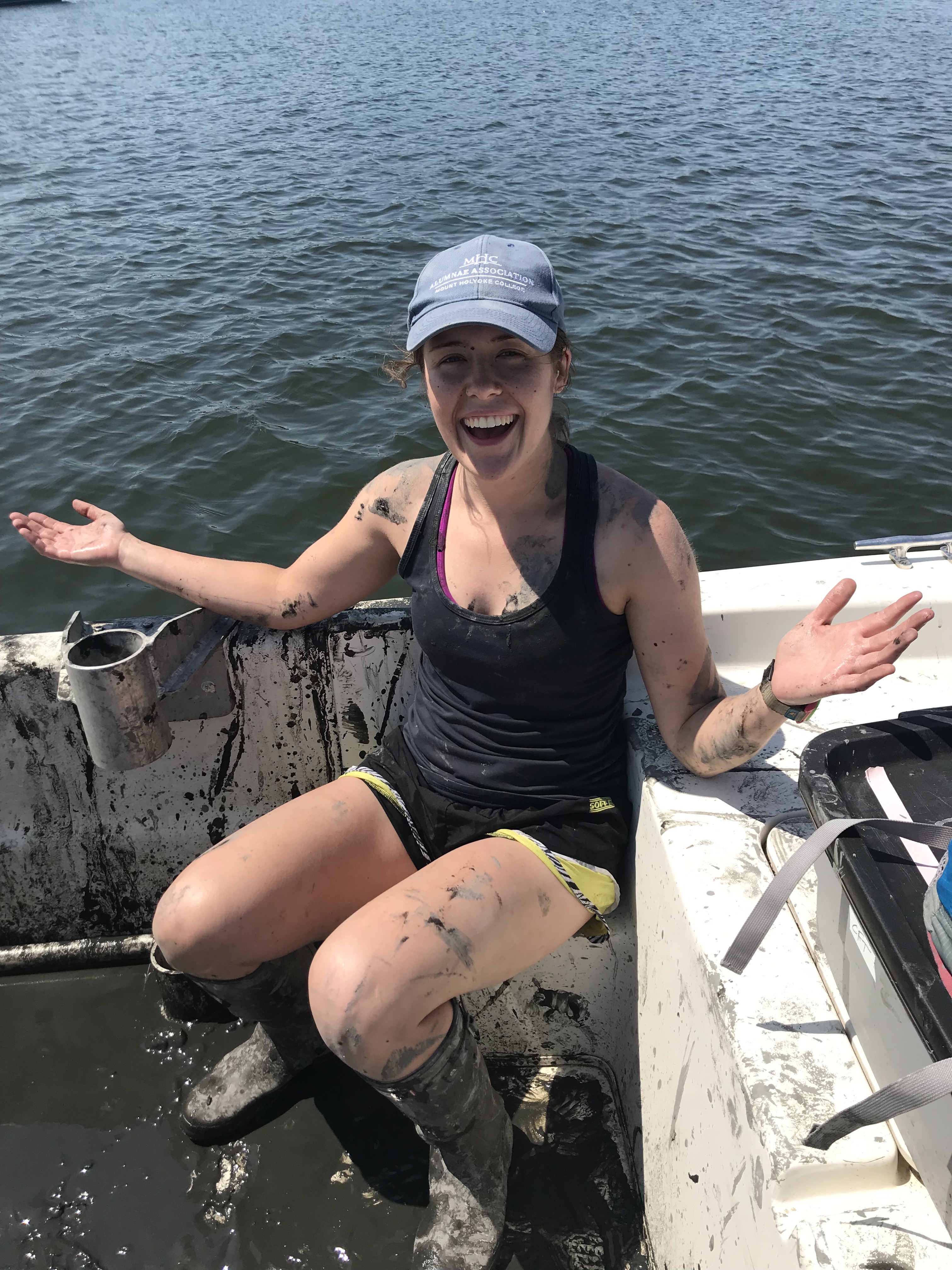Introducing First-Generation College Students to Science-based Careers
The Takeaway: The “Step into STEM” mentoring and workshop series, initiated and co-led by a Margaret A. Davidson Fellow, guided these students on crucial first steps toward science, technology, engineering, and math careers.

One study shows that first-generation college students are four times more likely than second-generation students to drop out of college before the end of their freshman year. Such students in science, technology, engineering, and math (STEM) disciplines can feel particularly isolated. A “Step into STEM” virtual webinar series addressing their needs was designed by two people who are first in their own families to attend college—Claudia Mazur, a recipient of NOAA’s Margaret A. Davidson Graduate Fellowship at the Waquoit Bay National Estuarine Research Reserve in Massachusetts, and Samuel Domingues, a University of Massachusetts graduate and former recipient of the reserve’s minority-student internship.
This Waquoit Bay Research Reserve project also received funding or technical support from the NOAA North Atlantic Regional Collaboration Team and Office for Coastal Management, among other partners.
Not having other family members who attended college “made me feel isolated at times, and I often looked for support from mentors in high school and college,” says Mazur, who is completing a Boston University doctorate in science. “During the pandemic I had the opportunity to mentor similar kinds of students virtually, and I wanted them to know that this path was possible.”
Attendees included college-bound high school students, as well as college students in their freshman year. The series featured several presenters who were first-generation students themselves, and it included a career panel plus tips for applying to colleges, writing a resume and personal statement, and making the most of the college experience.
Students felt safe sharing their experiences with each other, and one attendee reached out afterwards to a panel member who had lived a similar first-generation story. Other Davidson Fellows have expressed interest in offering this sort of event, using “Step into STEM” materials as a template. (2022)
Partners: Boston University’s Newberry Center, Friends of the Waquoit Bay Reserve, Margaret A. Davidson Graduate Fellowship, Massachusetts Department of Conservation and Recreation, NOAA North Atlantic Regional Collaboration Team and Office for Coastal Management, Waquoit Bay Research Reserve
PRINT